Options trading brokers facilitate trades and provide the resources needed to execute strategies efficiently. Therefore, selecting the right broker can significantly impact your trading success, from reducing costs to enhancing profitability. This article compares the top five options trading brokers, emphasising their standout features and benefits, to ensure you choose the best platform for your trading needs.
Here’s a quick overview of the five brokers we’ll be discussing, along with their key benefits:
Broker:
Options:
Advantages:
Account:
Yes
- No Minimum Deposit
- Access to 1,000,000+ Assets
- Low Commissions from 0.008$/Share
- Leverage up to 1:5
- EU & US Regulated
Yes
- No Minimum Deposit
- FCA regulated
- Options contracts starting at $0.65
- No Platform Fees
- Demo Account available
- IBKR GlobalTrader, IBKR Desktop, Trader Workstation (TWS), & more
Yes
- No Minimum Deposit
- Multiple regulations
- $0.65 per Options contract
- Demo Account available
- 8 Options markets
- Schwab Trading, Thinkorswim
Yes
- No Minimum Deposit
- Multiple regulations
- $0.60 per Options contract
- Demo Account available
- 10 Options markets
- TradeStation
Yes
- No Minimum Deposit
- Multiple regulations
- $0.65 per Options contract
- Demo Account available
- 8 Options markets
- Active Trader Pro, Trading Dashboard, Fidelity Mobile
List of the Best 5 Options Trading Brokers
This section reviews the top five options trading brokers, focusing on their key features and benefits to help you choose the best one.
1. Freedom24
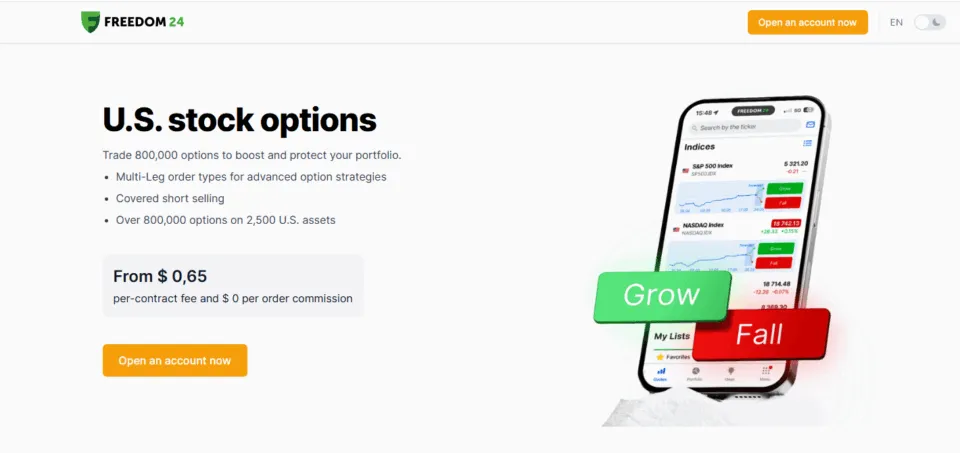
Freedom24 is a hidden gem for European investors seeking extensive market access, including access to US exchanges. WR Trading gives Freedom24 high marks for its competitive pricing, with options trades starting at $0.65 per contract. This fee structure helps keep trading costs low, which is a significant advantage for anyone looking to maximise returns without breaking the bank.
Freedom24 offers advanced options-specific trading tools, as well as a powerful web platform for trading. Currently, there are over 800,000 optiUS onUS00 U.S. assets. The platform provides a diverse range of trading instruments, including stocks, ETFs, and options, designed to provide a comprehensive trading experience. The advanced charting tools and detailed market analysis further enhance your ability to make informed trading decisions.
Freedom24 offers flexible account funding and withdrawal options thanks to its multiple payment methods. This flexibility suits many investors, making it a practical choice. Freedom24’s low fees and great range of possibilities place it at the top of our list.
| Feature | Freedom24 |
|---|---|
| Spreads and Commission | Varies based on account type: $0.65 per contract and $0 per order |
| Trading Platforms | Freedom24 trading platform |
| Asset Types | Stocks, ETFs, futures and options |
| Customer Support | Email, live chat, and phone support. |
| Demo Account | Yes |
| Educational Content | Freedom24 Academy |
| Regulation | CySEC |
2. Interactive Brokers
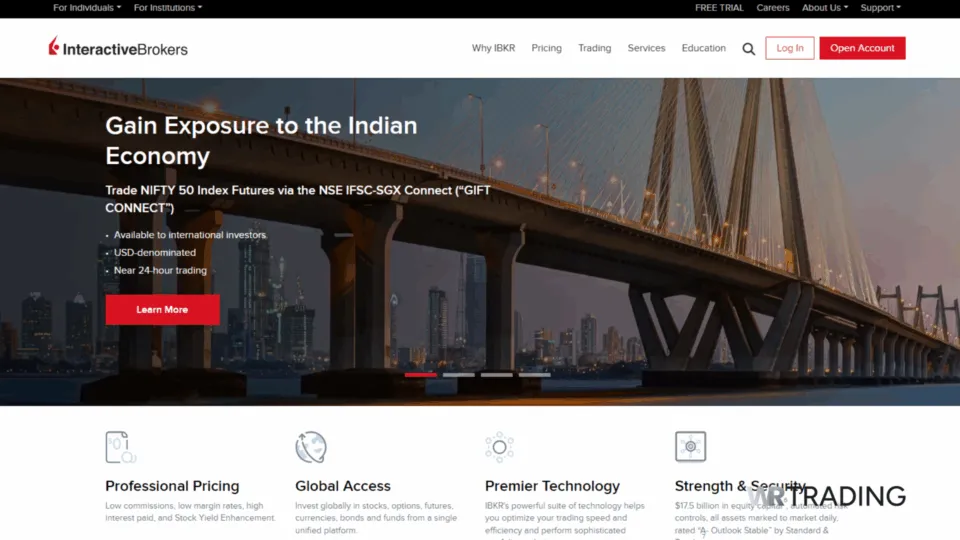
Advanced traders favour Interactive Brokers for its ultra-low commissions and sophisticated trading tools. If you’re serious about options trading, the cost savings here are a significant draw, with contracts starting at $0.65. Interactive Brokers offers some of the lowest trading fees in the industry, which can add up in your favour over time.
The platform is a powerhouse packed with features that suit the needs of experienced traders. The advanced charting tools, comprehensive risk management, and customizable strategies provide an excellent environment for executing complex trades. The global reach of Interactive Brokers is another significant advantage, offering access to markets worldwide and ideal for those seeking to implement diverse trading strategies.
Interactive Brokers excels in its range of options trading capabilities. The platform supports a wide range of contract types and complex strategies, giving you the flexibility to trade in your unique style. The combination of low commissions, advanced trading tools, and extensive market access makes Interactive Brokers a top pick for serious options traders.
| Feature | Interactive Brokers |
|---|---|
| Spreads and Commission | Varies based on account type: $0.65 to $0.25 per contract |
| Trading Platforms | IBKR Desktop |
| Asset Types | Stocks, ETFs, futures, options, cryptocurrency, bonds, commodities, indices, and more. |
| Customer Support | Email, live chat, and phone support. |
| Demo Account | Yes |
| Educational Content | Trader’s Academy, podcasts, and webinars. |
| Regulation | FINRA, SIPC, CIRO, FCA, SEC, CFTC, CBI, MBN, ASIC, and SFC HK. |
3. Charles Schwab
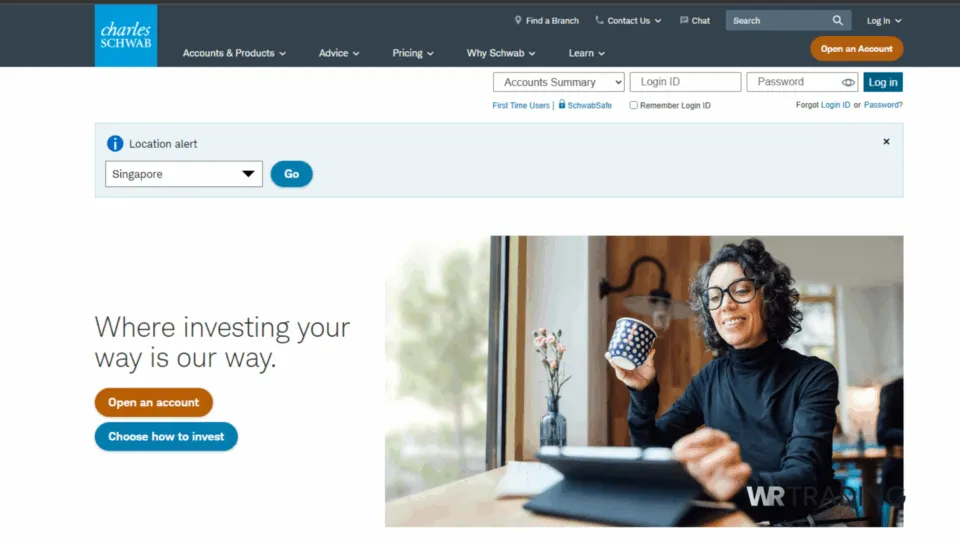
Charles Schwab offers a well-rounded package for traders at all levels, making it a reliable choice for options trading. The Thinkorswim trading platform is one of Schwab’s strongest points, featuring many tools specifically designed for options traders. Advanced charting, real-time data, and a variety of trading strategies are all at your disposal, providing a comprehensive trading experience.
One of the major appeals of Charles Schwab is its transparent pricing and low-cost trading options. Currently, options are priced at $0.65 per contract. This is beneficial for traders who want to keep their expenses low without compromising on the quality of their trading tools. The platform provides extensive options-trading capabilities, including access to various markets and contract types, which is ideal for implementing diverse trading strategies.
Additionally, Schwab offers valuable market insights and research tools to support informed decision-making. The platform is highly regulated, holding licenses from CySEC, CFTC, and FINRA.
| Feature | Charles Schwab |
|---|---|
| Spreads and Commission | Varies based on account type: $0.65 per contract |
| Trading Platforms | Schwab Trading and Thinkorswim |
| Asset Types | Stocks, ETFs, futures, options, cryptocurrency, bonds, commodities, indices, and more. |
| Customer Support | Email, live chat, and phone support. |
| Demo Account | Yes |
| Educational Content | Guides, technical analysis, and blogs. |
| Regulation | SEC, CFTC, MSRB, NFA, and FINRA |
4. TradeStation
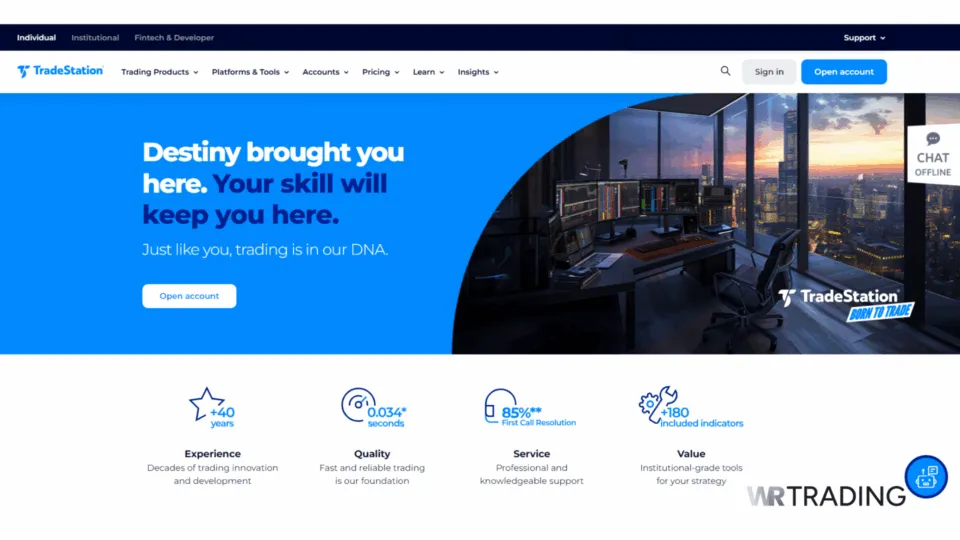
TradeStation is a powerhouse for active traders who need a reliable and feature-rich platform. Known for its advanced technology, TradeStation offers a trading platform that excels in high-frequency trading and complex options strategies. The broker charges $0.60 per options contract, making it our recommended choice at WR Trading.
The proprietary trading platform includes advanced charting, automated trading, and comprehensive technical analysis tools, catering specifically to the needs of active traders. TradeStation’s fee structure is competitive for high-volume traders who can take advantage of volume discounts. This cost efficiency, combined with the platform’s powerful technology, ensures that you can execute trades quickly and efficiently without worrying about high costs eating into your profits.
TradeStation supports a wide range of options strategies, providing the flexibility you need to implement your trading ideas effectively. The combination of advanced technology, competitive fees, and a suite of trading tools makes TradeStation a top choice for active options traders looking to leverage the best in trading technology.
| Feature | TradeStation |
|---|---|
| Spreads and Commission | Varies based on account type: $0.60 per contract |
| Trading Platforms | TradeStation |
| Asset Types | Stocks, options, futures, futures options, ETFs, and mutual funds. |
| Customer Support | Email, live chat, and phone support. |
| Demo Account | Yes |
| Educational Content | Guides, market insights, and TradeStation tutorials. |
| Regulation | CFTC, SEC, FINRA, and NFA. |
5. Fidelity
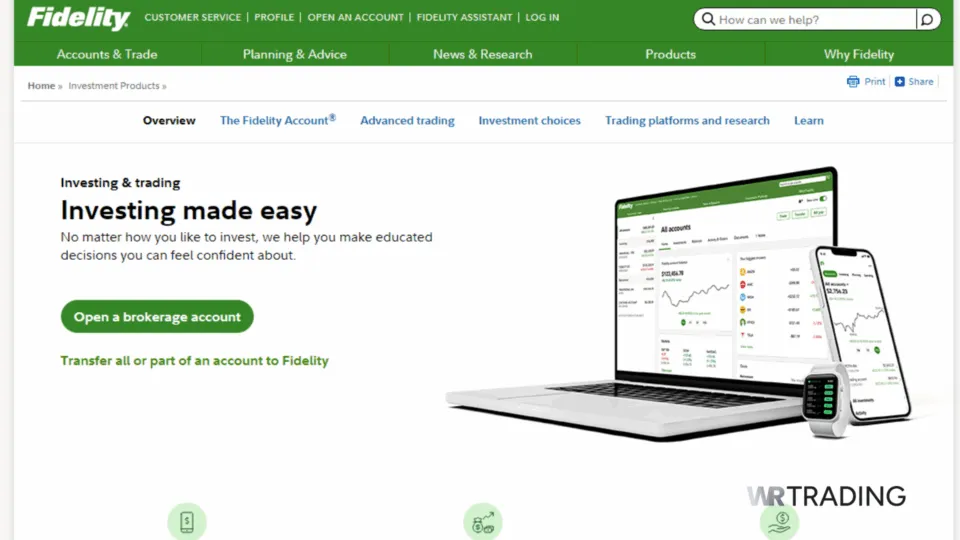
Fidelity has made it into our list for its comprehensive research tools and investor-friendly services. For options traders, Fidelity offers a platform with advanced trading tools, real-time analytics, and a variety of options strategies. The broker charges $0.65 per options contract with no base commission, which is quite competitive.
One of the key benefits of Fidelity is its extensive research capabilities, providing access to in-depth market analysis and reports from top analysts. This wealth of information supports your trading strategies and helps you stay ahead of market trends. Fidelity’s platform is designed to be easy to use, ensuring traders of all levels can utilise it.
| Feature | Fidelity |
|---|---|
| Spreads and Commission | Varies based on account type: $0.65 per contract |
| Trading Platforms | Active Trader Pro, Trading Dashboard, and Fidelity Mobile. |
| Asset Types | Mutual fund, cryptocurrency, ETFs, options, and more. |
| Customer Support | Email, live chat, and phone support. |
| Demo Account | Yes |
| Educational Content | News and a learning section with guides. |
| Regulation | FINRA, MSRB, FCA, PRA, and SEC. |
How We Reviewed the Best Options Trading Brokers
At WR Trading, our goal is to provide investors with accurate and comprehensive reviews to help them make informed decisions. For this review of the best options trading brokers, we focused on the key criteria most important to traders.
Cost Efficiency
We began by examining the fees for options trades and any additional charges that could impact overall costs. Brokers with straight-through pricing, prioritised by transparent, affordable policies such as $0.85 per contract, were rated higher.
Platform Usability
Next, we assessed the usability and functionality of each trading platform. We tested the interfaces, advanced charting tools, and trade execution processes. A user-friendly platform that combines simplicity with advanced features is essential for both beginners and experienced traders. Brokers with intuitive and advanced platforms scored higher.
Market Access
We considered the range of markets each broker provides access to. This included the ability to trade on various international markets and a wide range of instruments. Brokers offering access to a wide range of markets and diverse trading instruments, such as stocks, ETFs, and options, were rated more favourably.
Advanced Trading Tools
Advanced trading tools and real-time data were another critical aspect of our review. We evaluated how these tools support traders in making informed decisions. Brokers offering comprehensive and easy-to-use analytical tools scored higher in our evaluation.
Unique Features
We looked at any unique features that could enhance the customizability. This included options for automated trading, mobile trading capabilities, and customizable strategies.
Brokers with valuable additional features that offer extra convenience and flexibility received higher marks.
Research and Insights
We examined the research and market insights provided by each broker. Access to high-quality research and real-time market data can significantly enhance a trader’s ability to make informed decisions.
Account Types and Flexibility
The variety of account types and the flexibility offered by each broker were essential factors. We examined the various account options available and the features that come with each. Brokers that provided a range of flexible account options to suit different trading needs scored higher.
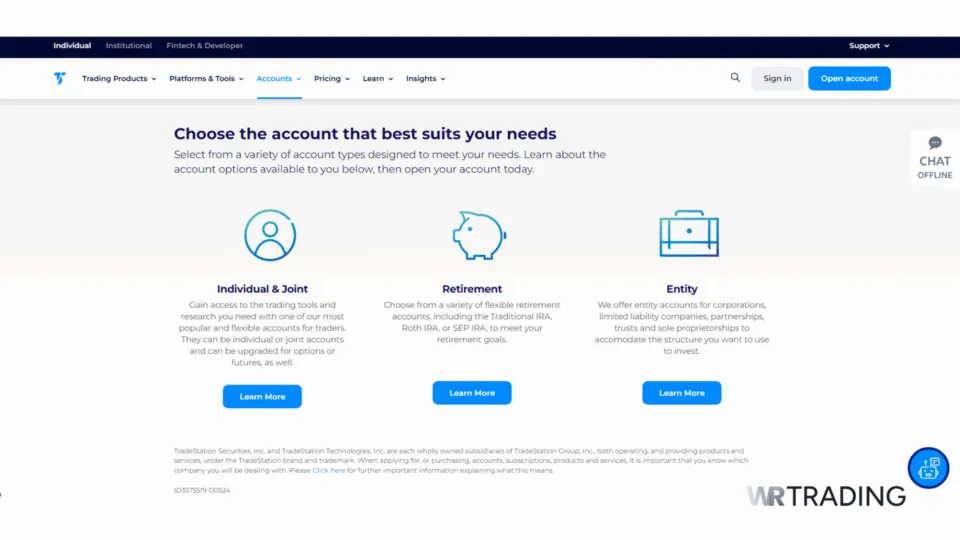
Regulation of Options Trading Brokers
Regulation plays a vital role in the safety and integrity of options trading. When a broker is regulated, it means they are monitored by official financial authorities, which helps protect traders from fraud and ensures fair trading practices. At WR Trading, we focus on brokers that are regulated by reputable bodies to provide traders with a secure trading environment.
Choosing a regulated broker means you are opting for a platform that meets high standards of financial stability and ethical conduct. This reduces the risk of encountering unethical practices and helps ensure that your funds are safe. Regulated brokers are required to provide clear disclosures about their services and fees.
How to Create an Options Trading Account
Setting up an options trading account is straightforward, but it’s essential to follow the proper steps to ensure everything is done correctly. Here’s a step-by-step guide to help you get started:
Choose a Broker
First, you need to select a broker that fits your trading needs. Consider factors like fees, platform usability, market access, and the availability of advanced trading tools. The trading brokers we reviewed in this article —Freedom24, Interactive Brokers, Charles Schwab, TradeStation, and Fidelity —are excellent choices.
Complete the Application
Once you’ve chosen a broker, visit their website and start the account opening process. You’ll typically need to provide personal information such as your name, address, and date of birth. This information is used to verify your identity and comply with regulatory requirements.
Verify Your Identity
After submitting your application, the broker will need to verify your identity. This often involves providing copies of identification documents, such as your passport or driver’s license, and proof of address, like a utility bill or bank statement.
The verification process is crucial for security and regulatory compliance, ensuring your account is protected and that the broker meets legal requirements.
Fund Your Account
After your application is approved, you’ll need to deposit funds into your account. Most brokers offer a variety of funding methods, including bank transfers, credit/debit cards, and electronic wallets. Make sure to check the minimum deposit requirements and any associated fees.
Configure Your Account Settings
Once your account is funded, you can customise trading preferences, including choosing your trading platform, setting up alerts, and customising your dashboard. Brokers offer demo accounts, which allow you to practice trading with virtual money before you start trading with real funds.
Start Trading
With your account set up, you’re finally ready to start trading options. Use the tools and resources provided by your broker to analyse the market and make informed trading decisions. Begin with small trades to become comfortable with the platform, and gradually increase your trading activity as you gain more experience.
What Is the Minimum Deposit to Start Options Trading?
The minimum deposit required to start options trading varies by broker, and it’s an essential factor to consider when choosing where to open your account. Generally, brokers set different minimum deposit levels based on the types of accounts they offer.
For instance, Interactive Brokers requires a minimum deposit of $10,000 for a standard account, which is designed for more experienced traders. On the other hand, Charles Schwab does not have a minimum deposit requirement, making it more accessible for beginners or those with smaller budgets.
It’s essential to select a broker whose minimum deposit aligns with your financial situation and trading objectives. Starting with a broker that requires a lower minimum deposit can be advantageous if you’re new to options trading or want to start with a smaller investment.
Software & Platforms for Options
The right trading software and analysis can significantly enhance your options trading experience. They provide the tools and features to analyse the market, examine your portfolio, and manage it efficiently. Here’s a look at some of the key software and platforms available:
In-House Platforms
Many brokers offer proprietary trading platforms designed to integrate seamlessly with their services. These in-house platforms are tailored to meet their users’ needs and often include unique features.
- Interactive Brokers’ Trader Workstation (TWS): TWS offers customizable advanced functionalities, risk management features, and comprehensive trading capabilities. It’s highly customizable, allowing users to set up their workspace according to their preferences.
- TradeStation: TradeStation’s platform offers proprietary technology and advanced analytics. It provides automated trading and extensive backtesting, making it an ideal choice for active traders.
- Charles Schwab’s StreetSmart Edge: This platform offers an intuitive design combined with powerful trading tools. It includes advanced charting, screening tools, and real-time data, making it suitable for both beginners and advanced traders.
Third-Party Platforms
In addition to proprietary platforms, many brokers support third-party trading software, providing users with flexibility and additional features.
- MetaTrader 4 and 5 (MT4/MT5): These are among the most popular third-party platforms, known for their extensive range of technical analysis tools, automated trading capabilities, and community of traders sharing insights and strategies.
- NinjaTrader: NinjaTrader is favoured for its advanced charting and research tools. It offers extensive automated trading options and supports a wide range of market data feeds.
- TradingView: TradingView is highly regarded for its user-friendly interface and powerful charting capabilities. It offers a comprehensive range of technical analysis tools and integrates with various brokers, making it a versatile option for many traders.
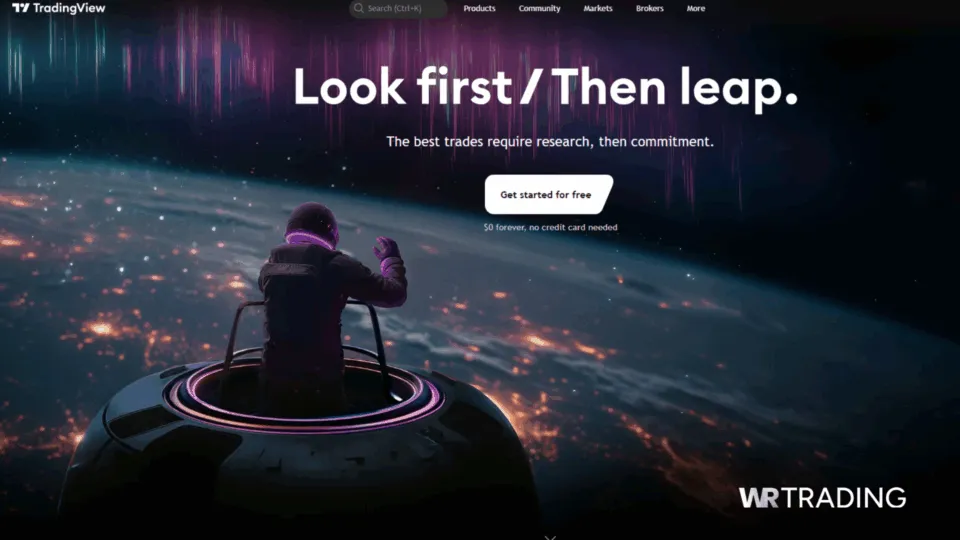
Mobile Trading
In today’s fast-paced world, having access to a reliable mobile trading app is essential. Most brokers offer mobile versions of their platforms, allowing traders to manage their accounts and execute trades on the go.
- Interactive Brokers Mobile: This app mirrors many of the functionalities of the TWS desktop platform, providing traders with powerful tools in a mobile-friendly format.
- TradeStation Mobile: Known for its user-friendly interface, the TradeStation mobile app offers advanced trading features, real-time quotes, and seamless account management.
- Fidelity Mobile: Fidelity’s mobile app provides comprehensive trading capabilities, account monitoring, and access to research and analysis tools.
Conclusion
We’ve reviewed five top options trading brokers: Freedom24, Interactive Brokers, Charles Schwab, TradeStation, and Fidelity. Each broker offers unique strengths, from Freedom24’s market access for European investors to Interactive Brokers’ low commissions and advanced tools for seasoned traders.
Depending on your needs, you might prefer a platform with low fees, advanced trading tools, or extensive market access. By considering the features and benefits we’ve outlined, you can choose the broker that aligns best with your trading goals. With the right broker, you can enhance your trading strategies and achieve better results in the options market.
Quick Overview of the Top 5 Options Brokers:
- Freedom24 – Extensive market access for European investors.
- Interactive Brokers – Low commissions for advanced traders.
- Charles Schwab – Exceptional customer service for all investor levels.
- TradeStation – Advanced platform for active traders.
- Fidelity – Comprehensive research tools for all traders.
Frequently Asked Questions on Options Trading Brokers
What Are the Main Factors to Consider When Choosing an Options Trading Broker?
When choosing an options trading broker, consider factors such as per-contract fees, platform usability, and market access. Assess the availability of advanced trading tools and the broker’s regulatory status. These elements ensure a cost-effective and efficient trading experience.
What Is the Minimum Deposit Required to Start Trading Options?
The minimum deposit varies by broker, ranging from no minimum to several thousand dollars. For example, Charles Schwab requires no minimum deposit, whereas Interactive Brokers requires a minimum deposit of $10,000 for a standard account.
How Important Is Regulation When Choosing an Options Trading Broker?
Regulation is essential for ensuring the safety and integrity of your trading experience. Regulated brokers adhere to strict guidelines set by financial authorities, which protect traders from fraud and ensure fair trading practices. Always choose brokers regulated by reputable bodies, such as the SEC or the FCA.
What Advanced Trading Tools Should I Look for in an Analysis Broker?
Look for brokers that offer advanced charting tools, risk management features, and customizable trading tools that enable you to analyse the market, make informed decisions, and manage your trades effectively. Interactive Brokers and TradeStation are known for their advanced trading tools.
How Can I Practice Familiarising Before Using Real Money?
Many options brokers offer demo accounts, allowing you to practice trading with virtual money. These accounts will enable you to familiarise yourself with the platform and test your strategies without financial risk. Demo accounts are a great way to gain confidence before trading with real funds.





